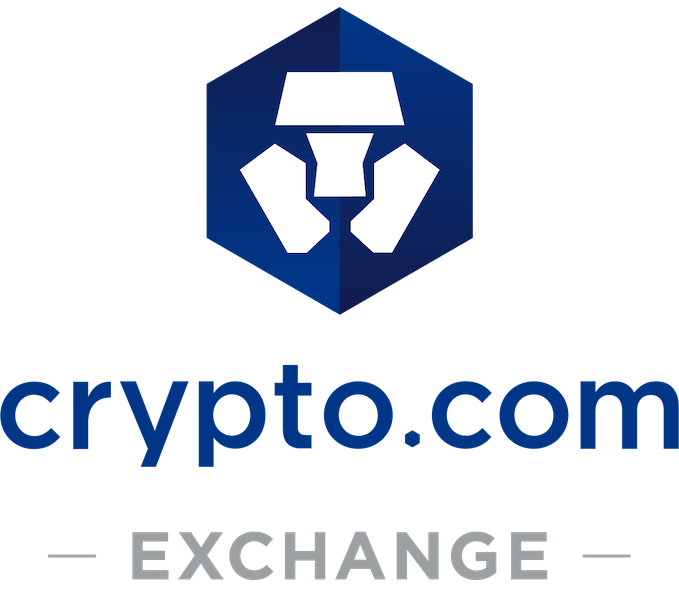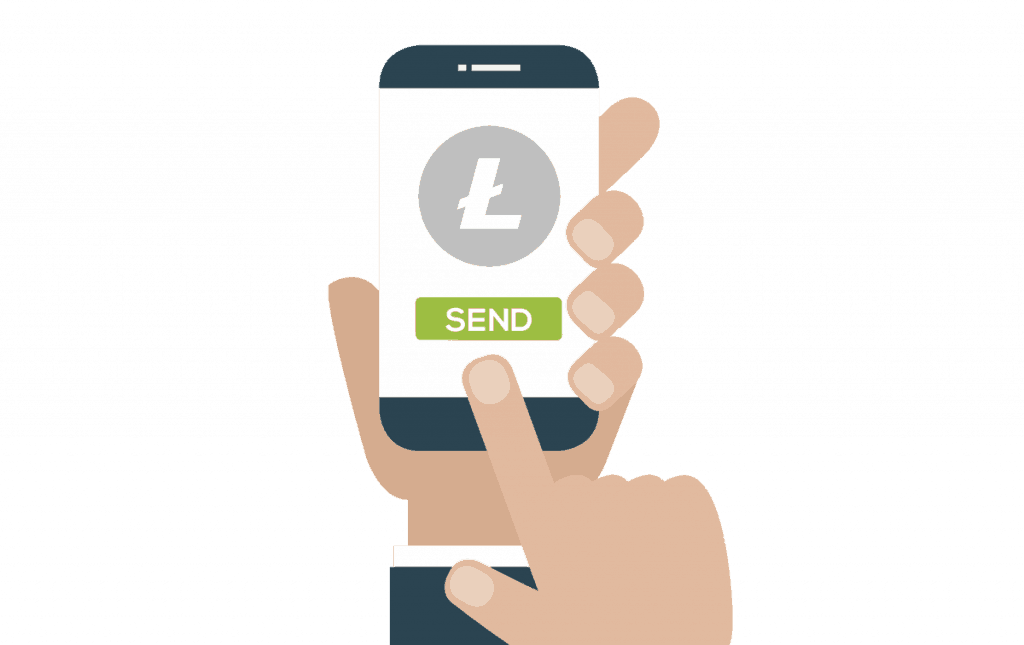WHICH IS BETTER? Bitcoin Cash vs Litecoin
![]()
A Complete Comparison with All Pros/Cons of Litecoin vs. Bitcoin Cash

Bitcoin Cash (BCH) versus Litecoin (LTC)? While BCH and LTC are among the leading and most popular cryptocurrencies today, which of them is a better investment? What is the difference between them? Which is expected to grow faster?
These are some of the questions a lot of people ask about these cryptocurrencies, hence, this Bitcoin Cash vs Litecoin comparison guide. We understand that it’s hard to select the best cryptocurrencies, especially when they are very similar.
Bitcoin Cash vs Litecoin, which should you buy? It’s essential to collect valuable information and analyze it before making an investment decision. This is a complete comparison guide with everything you need to know.
We have done in-depth research in both Litecoin and Bitcoin Cash. You will find all the pros and cons of these coins.
Let’s begin by looking at our side-by-side comparison →
CHAPTER 1
Side-by-Side Comparison
CHAPTER 2
History of Litecoin
CHAPTER 3
What is Bitcoin Cash?
CHAPTER 4
Pros & Cons with Litecoin / Bitcoin Cash
CHAPTER 5
Litecoin vs Bitcoin Cash - Differences
CHAPTER 6
Bitcoin Cash vs Litecoin - Which is Best?
WINNER
Buy Cryptocurrency Here
FAQ
Frequently Asked Questions
Top 3 Crypto Exchanges - February 2026
| # | Most PopularExchange | Rating | Services | Deposit / Withdraw | Fees / Spread | Why Open Account? | |||||
|---|---|---|---|---|---|---|---|---|---|---|---|
 |  | 98 | All-in-One | Low$0 / $5 | Low$0 / ~0.75% |
| |||||
| Payment Methods: | Cryptocurrencies: | Payment Methods: | |||||||||
 |  | 91 Read Review | Exchange | Low | Mid |
| |||||
 |  | 87 | Exchange | Low | Mid |
| |||||
| 4 |  | 85 Read Review | Exchange | Low$0 / $2 | Mid1.49-3.99% + ~0.50% |
| |||||
| 5 |  | 85 | Exchange | Low | Mid |
| |||||
| 6 |  | 85 | Exchange | Low | Mid |
| |||||
| 7 |  | 85 | Exchange | Mid | Low |
| |||||
| 8 |  | 79 | Exchange | Low | Mid |
| |||||
| 9 |  | 77 | Exchange | Low | Mid |
| |||||
| 10 |  | 76 | Exchange | Low | Mid |
| |||||
| 11 |  | 75 | Exchange | Low | Low |
| |||||
| 12 |  | 75 | Exchange | Mid | Mid |
| |||||
| 13 |  | 70 | Exchange | Low | Mid |
| |||||
| 14 |  | 70 | Exchange | Low | Mid |
| |||||
| 15 |  | 66 Read Review | Exchange | Mid | Low |
| |||||
| 16 |  | 62 | Exchange | Mid | Mid |
| |||||
| 17 |  | 57 | Exchange | High | High |
| |||||
Welcome to CryptoRunner! I’m David Andersson, co-founder of this site.
We understand that cryptocurrencies can be confusing and frustrating. That’s why we are here to help you.
Keep reading!

CHAPTER 1
Side-by-Side Comparison

The summary table below shows some important figures to compare. Which numbers are most important? That depends on who you ask. You should continue reading the guide to learn about all the differences. If you want to choose the best cryptocurrency for you, it’s not enough to compare some numbers. However, let’s start by comparing Litecoin with Bitcoin Cash →
Bitcoin Cash vs Litecoin
| Bitcoin Cash (BCH) | Litecoin (LTC) | |
|---|---|---|
| Founder/Launch Date | Roger Ver along with a group of Bitcoin activist, developers and miners on August 1, 2017 | Charlie Lee on October 2011 |
| Total Supply | 17.1 million | 84 million LTC |
| Block Confirmation Time | 10 minutes | 2.5 minutes |
| Block Size Limit | 32MB | 1MB (4MB wit Segwit) |
| Average Blocks per hour | 6 | 23 |
| Current Block Reward | 12.5 BCH (Halving scheduled to occur in April 2020) | 25 LTC (Halving estimated to occur in August 2019) |
| Block Reward Scheme | Halved every 840,000 blocks | Halved every 210,000 blocks |
| Hashing Algorithm | Scrypt | Secure Hash Algorithm (SHA) 256 |
| Hash rate | 2.285 Ehash/s | 334TH/s |
| Normal Description | Bitcoin clone | Faster Bitcoin |
CHAPTER 2
History of Litecoin

Litecoin (LTC) is a virtual currency that allows fast and low-cost payments that can be globally used by anyone. It was launched in October 2011 by Charlie Lee who was an engineer at Google and Coinbase.
Mr. Lee cloned the code base of Bitcoin (BTC) and made some small but important tweaks to the code that would solve some of the issues faced by Bitcoin. These problems include high transaction fees, slow transaction times, as well as concentrated mining pools.
However, while Litecoin and Bitcoin share some similarities, the significant changes made by Lee has resulted in decreased block generation times of approximately 2.5 minutes as opposed to the 10 minutes of Bitcoin. Hence, transaction clearance is faster and transaction fees are cheaper.
New hashing algorithm
Moreover, this modification also includes a new hashing algorithm called “Scrypt” instead of Bitcoin’s Secure Hash Algorithm (SHA) 256, and a larger total supply of 84 million coins compared with 21 million coins for Bitcoin. Today, Litecoin is considered a “digital silver” as it is a means of quicker and cheaper payments while Bitcoin operates as “digital gold”.
That being said, Litecoin vs Bitcoin Cash, these two alternative cryptocurrencies are Bitcoin’s biggest contenders by market capitalization and also by popularity. Let’s now consider what Segwit is.
What is Segwit?
Segregated Witness aka SegWit, is a protocol upgrade that involves the process of removing (Segregate) signature (Witness) data from transactions so as to increase the block size limit on a blockchain. In other words, SegWit means to separate transaction signatures to create more space to include more transactions to the chain.
The SegWit concept was first presented at the Scaling Bitcoin conference in back in December 2015 by a Bitcoin developer, Pieter Wuille, and was later activated on Litecoin on May 10, 2017.
Before we compare Litecoin vs Bitcoin Cash, you should probably know what BCH is.
CHAPTER 3
What is Bitcoin Cash?

Bitcoin Cash is fully decentralized peer-to-peer electronic cash for the Internet. It was first introduced on August 1, 2017. But before we go into much detail on this cryptocurrency, let’s first tell you a short story of what led to its emergence.
The aforementioned digital coin was born from Bitcoin, the world’s first cryptocurrency that was created over ten years ago. However, since the inception of BTC, there have been some pressing issues surrounding its ability to scale effectively. When it was created, Bitcoin block of transactions was limited to 1MB (today its 2MB).
Bitcoin Cash popularity has grown tremendously fast
So as its popularity grew over time and more people started using the network, the block within the network started getting congested. As a result, the transaction speeds became very slow at around 7 transactions per second (tps) on average, when compared with Visa that performs about 1700 tps. This has also led to higher transaction fees, thus, undermining the ease of use of the entire system.
To solve this scaling issue, a group of miners and developers in the Bitcoin community decided to split the network in August 2017, using a process known as “Hard Fork” to create a new version of Bitcoin which is today called Bitcoin Cash.
Bitcoin (BTC) and Bitcoin Cash (BCH) difference
While they are both alike, because they use the same codebase, BCH has some very noticeable differences, one of which is the block size limit of 8MB initially. It has now been upgraded to 32MB blocks.
This increased block size increases the transactions processing times and the number of transactions that can be processed by the network per day. Bitcoin Cash creators hope that one day, BCH volume of transactions will be able to compete with that of industry giants like Visa and PayPal.
In an added twist, Bitcoin Cash has recently undergone another hard fork on November 15, 2018, which resulted in two different coins and blockchain. But that story will be told another time. But what does Hard Fork mean? We’ve got it covered in this Litecoin vs Bitcoin Cash guide!
What Is A Hard Fork?
When you hear the word “Hard Fork”, think of a married couple who got divorced. They previously lived together as one, but after the breakup, they became two parties who are independent of each other. Got it?
Put differently, a hard fork involves splitting a single cryptocurrency in two. It occurs when the code of the previous crypto is tweaked, resulting in both an old and latest version that are incompatible.
This, of course, is a Bitcoin Cash vs Litecoin debate. How do these two well-known networks compare? Read on!
CHAPTER 4
Pros & Cons with Litecoin / Bitcoin Cash

Pros of Litecoin
Below, are several reasons why you should invest in Litecoin. Let’s take a look at them.
- Speedy transaction time: Litecoin is incredibly faster as it completes transactions within 2.5 minutes, compared to the BCH’s 10 minutes it takes to perform a similar task.
- Low Transaction Fees: Litecoin offers significantly cheaper transaction fees which are an obvious advantage when compared to other cryptocurrencies, thus making it a digital coin to adopt.
- Atomic and Submarine Swaps: There are atomic and submarine swaps between LTC/BTC. With these swaps, a merchant can get paid with a Litecoin Invoice or Litecoin on-chain and they will automatically receive a Bitcoin Invoice.
- Reliability: Litecoin is reliable and trustworthy because it was created by Charlie Lee who was an engineer at Google and Coinbase and an MIT grad.
- Ease of Use: Making purchases with Litecoin is easy when compared to most other cryptocurrencies because it is supported by a growing number of crypto wallets and debit cards.
- High Supply: As the silver to Bitcoin’s gold, Litecoin raises the 21 million limit of BTC by a large number, a total supply of 84 million coins, thus, making it enough to mine and also to invest in.
- Security: The faster transaction processing with the help of the Lightning Network makes Litecoin less susceptible to double spending attack.
You may want to learn: How to buy Litecoin with a credit card?

Cons of Litecoin
Litecoin is not perfect. Here, we take a quick look at the major challenges Litecoin faces:
- Centralization: Litecoin mining is centralized – three mining pools are in control over 50% of the hash power making it vulnerable to a 51% attack.
- Litecoin Founder Sold All of His LTC Holdings: Due to a conflict of interest, the founder of Litecoin, Charlie Lee announced that he has sold all of his Litecoin holdings on December 20, 2017, through the exchange and donations.
- Security: As mentioned above, Litecoin is less susceptible to double spending attack; however, it is not as secure as some other cryptocurrency such as Bitcoin Cash, because of its short block times.
- Litecoin Uniqueness Declines: While it prides itself in efficiency and speed, Litecoin lost one of the values when Bitcoin added the SegWit update to its catalog of offerings.
- What if Bitcoin Solves Its Scalability Issue? If Bitcoin’s scaling problem is improved upon, the Litecoin market will be negatively impacted as investors have always preferred Bitcoin in the cryptocurrency trade.

Pros of Bitcoin Cash
Let’s start off on a positive note first by having a look at all the pros of Bitcoin Cash and why you can add it to your portfolio:
- Block Size & Speed: Unlike Litecoin, which limits the maximum block size to 1MB, Bitcoin Cash has scaled to 32MB block size. This makes BCH transactions get validated, processed quickly with significantly lower fees.
- BCH Is Listed on Major Crypto Exchanges: Almost every top cryptocurrency exchanges support Bitcoin Cash. This ensures that buying and selling of these digital coins are done with ease and convenience.
- Mining Difficulty Adjustments: The Bitcoin Cash community has developed a new algorithm known as the DAA to stabilize difficulty fluctuations, and to make blocks mining regular. The DAA algorithm protects BCH from timestamp attacks.
You may want to learn: How to buy Bitcoin Cash with a credit card?

Cons of Bitcoin Cash
Despite the advantages we have considered, Bitcoin Cash also has its fair share of demerits. Have a look:
- Centralization: The major disadvantage of Bitcoin Cash is centralization which contradicts the overall principle of blockchain. Four mining pools are in control over 50% of the hash power and this may result in a 51% attack.
- Large Blockchain: While a huge block size can be seen as advantageous, as it helps in processing transactions speedily, the downside is that larger blocks miners are required to have a lot more data storage space which comes with a cost.
- Low Adoption Rate: High adoption increases the investment potential of any cryptocurrency. At the moment, the low adoption rate is plaguing Bitcoin Cash despite the backing of Roger Ver and Jihan Wu.
That said, the reason for the Bitcoin Cash vs Litecoin debate is to know which one of them is the best cryptocurrency investment. Let’s compare their differences →
CHAPTER 5
Litecoin vs Bitcoin Cash - Differences

While both cryptocurrencies are living up to their mission, let’s evaluate how Bitcoin Cash vs Litecoin differs in three key areas; scalability, transaction volume, and mining.
1. Scalability
How is Litecoin vs Bitcoin Cash different in terms of scaling transaction? At the moment, Litecoin block size is 1MB and is smaller when compared to Bitcoin Cash’s 32MB block size. Moreover, while new Bitcoin Cash’s blocks are added every 10 minutes, Litecoin blocks generation time is set to 2.5 minutes.
Meanwhile, Litecoin’s average transaction size is about 443 bytes. As per the data from coinanalysis, BCH transaction size on the average is only 226 bytes. In other words, Bitcoin Cash can handle thousands of transactions every hour when compared with Litecoin due to its massive 32MB blocks that are mined approximately 10 minutes. According to recent data, Bitcoin Cash’s average block size is just 171KB, while Litecoin’s average block size is at 18 kilobytes.
Different approaches for scalability
From the following, you can see the clear distinction between Litecoin vs Bitcoin Cash with respect to block size limits, which also reveals the different approaches the teams behind them have adopted to scalability.
Nevertheless, it is also worthy of note, that when it comes to optimizing transaction speed, the core developers of Litecoin have given the coin some edge over Bitcoin Cash as they are examining the Lightning Network (LN).
This is a Layer-2 payment solutions that enables fast transactions between participants. While it was originally designed for Bitcoin, LN has made Litecoin transactions cheaper and almost instantaneous. While the adoption of the lightning network scaling solution is growing rapidly, it is still under development.
2. Transaction volume
When measured in real transaction volume, between Bitcoin Cash vs Litecoin, which has more usage?
While both altcoins were developed with the goal of making a virtual currency with small transfer fees and faster confirmation times, BCH and LTC are still dragging their feets in terms of transaction volume. As a matter of fact, Bitcoin transaction volume per day is still higher than both.
The reason for this might be because, at the moment, there is low interest in digital or electronic cash. Most people today still find it convenient to use their debit cards and credit cards for their everyday transactions on the internet.
Litecoin has more volume today
But between Bitcoin Cash vs Litecoin, the later has been the champion most recently as its daily transaction volume is estimated to be from 20,000 – 30,000 every day. There are two reasons for this. The first reason is because Litecoin blocks generation time is approximately 2.5 minutes, which is four times faster than those of Bitcoin Cash which takes about 10 minutes.
Secondly, Zulu Republic announced the introduction of Litcoin SMS payments for US residents via Lite.im. This innovative service has taken Litecoin services to another level as users easily send and receive the crypto via facebook messenger, SMS or Telegram with a mobile phone number, services Bitcoin Cash lack at the moment.
In contrast, the transaction volume of Bitcoin Cash in the past few months has floated around 10,000 to 40,000 per day. While Bitcoin Cash is cheaper to send and use, its November 2018 hard fork that split into Bitcoin Cash and Bitcoin SV did not inspire trust and confidence of its users in the network, thus, significantly reducing BCH activity.
3. Mining
Earlier, we mentioned that some of the biggest Bitcoin miners have backed the BCH hard fork. So when it comes to mining centralization, how is Litecoin vs Bitcoin Cash different?
Nowadays, mining on both cryptocurrencies is highly centralized. Like BTC, Bitcoin Cash uses the Proof of Work (PoW) consensus and algorithm (SHA-256). BCH mining is done through two main chips, the CPUs (Central Processing Units) and the GPUs (Graphics Processing Units). Nevertheless, these two cannot compete with advanced ASIC machines.
On the other hand, Litecoin is more centralized than Bitcoin Cash as it utilizes Scrypt hash algorithm, which is the most popular PoW consensus mechanism. Unlike Bitcoin’s algorithm, Scrypt is memory intensive as it requires miners to quickly generate hashes stored on Litecoin blockchain. In other words, it requires more memory than a regular algorithm.
In addition, Litecoin is extremely secure, because LTC mining is done through the use of Application Specific Integrated Circuits (ASICs) and is stronger than CPU or GPU mining.
If you decide to invest both cryptocurrencies, make sure to check out our list for the best crypto wallets to keep them secured. However, if you had to choose, which is the best?
CHAPTER 6
Bitcoin Cash vs Litecoin - Which is Best?

Is BCH better than LTC? As we have so far highlighted in this Bitcoin Cash vs Litecoin guide, both cryptocurrencies share numerous similarities. Both cryptos are hard forked from Bitcoin, they share the same codebase, and they both have the ability to scale effectively. What is more, BCH and LTC are among the top 10 largest cryptocurrencies by market capitalization.
The goal of the teams behind these networks is to satisfy the need for virtual currencies with low fees and fast confirmation times. So far in this Litecoin vs Bitcoin Cash comparison, we have made you understand their primary differences, advantages, and disadvantages. However, don’t forget that these are all minor things in the long run.
Bitcoin Cash and Litecoin are both cryptocurrencies. For this reason, they are both depended on the crypto market development. If the demand for digital payments increases, both coins will probably increase in value.
Which Should You Buy?
There is no straight answer to that question. You need to make that decision yourself. We hope this was enough information to compare these cryptocurrencies. If nothing else, you can buy both Bitcoin Cash and Litecoin to build a diversified long-term portfolio.
Which one will you buy? Let us know in the comments! Below you will find the best exchange for buying both Litecoin and Bitcoin Cash →
 | Buy Bitcoin Cash / Litecoin Now!
|
Risk Disclaimer: Don’t invest unless you’re prepared to lose all the money you invest. This is a high-risk investment and you should not expect to be protected if something goes wrong.
Frequently Asked Questions
Is your question not answered here? Let us know!
It takes ≈ 2.5 minutes to confirm a Litecoin block.
It takes ≈ 10 minutes to confirm a Bitcoin Cash block.
The Litecoin network will produce a total number of 84 million Litecoins. As of writing this, miners are awarded with 50 new Litecoins per block. This amount gets halved roughly every 4 years (every 840,000 blocks).
Do you want to buy Litecoin instantly with your debit/credit card? In that case, use the cryptocurrency exchange we recommend above. It’s the fastest and easiest way to buy Litecoin →
Do you want to buy Bitcoin Cash instantly with your debit/credit card? In that case, use the cryptocurrency exchange we recommend above. It’s the fastest and easiest way to buy Bitcoin Cash →
















FORUM
Join The Discussion